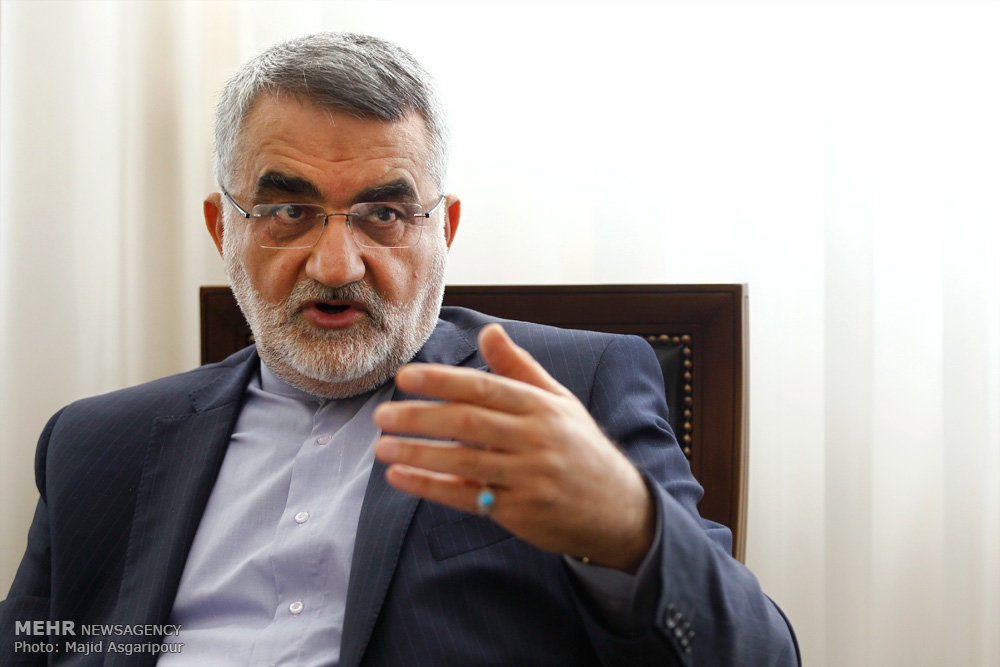Iranian officials to get secure telephone lines

TEHRAN – Iranian officials are going to receive secure telephone lines in the near future, according to the Majlis National Security and Foreign Policy Committee chairman.
The plan to provide the officials with the telephone lines comes after the Passive Defense Organization passed a regulation on smartphones, Alaeddin Boroujerdi said.
He raised concern that sometimes intelligence agents call officials pretending to be reporters and thereby acquire information.
On Monday, Gholam Reza Jalali, head of Iran's Passive Defense Organization, also confirmed that the first phase of providing secure telephone lines to officials has been launched by the Defense Ministry.
Saudi Arabia is ‘number one threat’
Jalali also warned of the danger of Saudi Arabian offensive strategy toward the Islamic Republic, describing Riyadh as “number one threat” against Iran.
“The U.S., Israel, and Saudi Arabia are the main threats against us and we are in dispute with Saudi Arabia in the three military, economic and cyberspace fields,” Jalali stated.
Jalali noted that Israel and Saudi Arabia have produced and stockpiled masses of weapons and military equipment.
The military official also said that Saudi Arabia is fighting on behalf of the United States in the region.
The brigadier general further said that the Persian Gulf is the frontline of the conflict between Iran and Saudi Arabia, and in the event of a war, Saudi Arabia would suffer greatly.
“Then, Iran and America would suffer, and finally the whole world would suffer [from such a war],” he added.
He described Saudi officials as “inexperienced”, who have adopted an offensive strategy towards Iran.
The official said the other two major sources of dispute between Iran and Saudi Arabia are economy and cyberspace. He urged the Islamic Republic to take necessary steps in these two fields in order to counter its regional rival.
For years, Iran’s primary enemies have been the United States and Israel. However, since cutting ties with Iran in January, Riyadh has joined these two countries by adopting a more aggressive policy towards the Islamic Republic. It has also managed to convince a number of Persian Gulf states as well as some other countries in the Arab world to team up with it against Iran.
For its part, the Islamic Republic has criticized Riyadh for playing the “Iran card”, and on numerous occasions denounced the regime’s anti-Iran policies as “unconstructive”.
MH/PA
